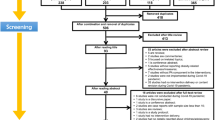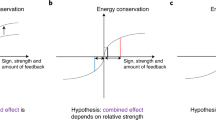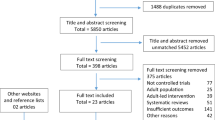Abstract
Energy education programmes for children are hypothesized to have great potential to save energy. Such interventions are often assumed to impact child and family behaviours. Here, using a cluster-randomized controlled trial with 30 Girl Scout troops in Northern California, we assess the efficacy of two social cognitive theory-based interventions focused on residential and food-and-transportation energy-related behaviours of Girl Scouts and their families. We show that Girl Scouts and parents in troops randomly assigned to the residential energy intervention significantly increased their self-reported residential energy-saving behaviours immediately following the intervention and after more than seven months of follow-up, compared with controls. Girl Scouts in troops randomly assigned to the food-and-transportation energy intervention significantly increased their self-reported food-and-transportation energy-saving behaviours immediately following the intervention, compared with controls, but not at follow-up. The results demonstrate that theory-based, child-focused energy interventions have the potential to increase energy-saving behaviours among both children and their parents.
This is a preview of subscription content, access via your institution
Access options
Subscribe to this journal
Receive 12 digital issues and online access to articles
$119.00 per year
only $9.92 per issue
Buy this article
- Purchase on Springer Link
- Instant access to full article PDF
Prices may be subject to local taxes which are calculated during checkout


Similar content being viewed by others
References
Lane, J. F., Floress, K. & Rickert, M. Development of school energy policy and energy education plans: a comparative case study in three Wisconsin school communities. Energy Policy 65, 323–331 (2014).
Ntona, E., Arabatzis, G. & Kyriakopoulos, G. L. Energy saving: views and attitudes of students in secondary education. Renew. Sust. Energy Rev. 46, 1–15 (2015).
Kandpal, T. C. & Broman, L. Renewable energy education: a global status review. Renew. Sust. Energy Rev. 34, 300–324 (2014).
Heimlich, J. & Ardoin, N. Understanding behavior to understand behavior change: a literature review. Environ. Educ. Res. 14, 215–237 (2008).
Stern, P. C. Toward a coherent theory of environmentally significant behavior. J. Soc. Issues 56, 407–424 (2000).
Steg, L. Promoting household energy conservation. Energy Policy 36, 4449–4453 (2008).
Damerell, P., Howe, C. & Milner-Gulland, E. J. Child-orientated environmental education influences adult knowledge and household behaviour. Environ. Res. Lett. 8, 015016 (2013).
Boudet, H. et al. Energy behaviours of Northern California Girl Scouts and their families. Energy Policy 73, 439–449 (2014).
Carleton-Hug, A. & Hug, J. W. Challenges and opportunities for evaluating environmental education programs. Eval. Prog. Plan. 33, 159–164 (2010).
Zint, M. in International Handbook of Research on Environmental Education (eds Stevenson, R. B., Brody, M., Dillon, J. & Wals, A. E. J. ) 298–309 (Taylor & Francis, 2013).
Vaughan, C., Gack, J., Solorazano, H. & Ray, R. The effect of environmental education on schoolchildren, their parents, and community members: a study of intergenerational and intercommunity learning. J. Environ. Educ. 34, 12–21 (2003).
Trewhella, W. J. et al. Environmental education as a component of multidisciplinary conservation programs: lessons from conservation initiatives for critically endangered fruit bats in the Western Indian Ocean. Conserv. Biol. 19, 75–85 (2005).
Bradley, J. C., Waliczek, T. M. & Zajicek, J. M. Relationship between environmental knowledge and environmental attitude of high school students. J. Environ. Educ. 30, 17–21 (1999).
Aipanjiguly, S., Jacobson, S. K. & Flamm, R. Conserving manatees: knowledge, attitudes, and intentions of boaters in Tampa Bay, Florida. Conserv. Biol. 17, 1098–1105 (2003).
Flora, J. et al. Evaluation of a national high school entertainment education program: the Alliance for Climate Education. Climatic Change 127, 419–434 (2014).
Cornelius, M. et al. Increasing energy- and greenhouse gas-saving behaviors among adolescents: a school-based cluster-randomized controlled trial. Energy Efficiency 7, 217–242 (2013).
Puttick, G., Kies, K., Garibay, C. & Bernstein, D. Learning and behavior change in a Girl Scout program focused on energy conservation: saving energy to ‘save the planet’. J. Sust. Educ. 8, http://www.jsedimensions.org/wordpress/wp-content/uploads/2015/01/Puttick-et-al-JSE-Vol-8-Jan-2015.pdf (2015).
Pothitou, M., Kolios, A. J., Varga, L. & Gu, S. A framework for targeting household energy savings through habitual behavioural change. Int. J. Sust. Energy 35, 1–15 (2014).
Gladhart, P. M. & Roosa, M. W. Family lifestyle and energy consumption: an energy adaptation model. J. Consum. Stud. Home Econ. 6, 205–222 (1982).
Kleinschafer, J. & Morrison, M. Household norms and their role in reducing household electricity consumption. Int. J. Consum. Stud. 38, 75–81 (2014).
Knafo, A. & Galansky, N. The influence of children on their parents’ values. Soc. Personal. Psychol. Compass 2, 1143–1161 (2008).
Duvall, J. & Zint, M. A review of research on the effectiveness of environmental education in promoting intergenerational learning. J. Environ. Educ. 38, 14–24 (2007).
Rimal, R. N. & Flora, J. A. Bidirectional familial influences in dietary behavior test of a model of campaign influences. Hum. Commun. Res. 24, 610–637 (1998).
Legault, L. & Pelletier, L. G. Impact of an environmental education program on students’ and parents’ attitudes, motivation, and behaviours. Can. J. Behav. Sci. 32, 243–250 (2000).
Robinson, T. N. & Borzekowski, D. L. G. Effects of the SMART classroom curriculum to reduce child and family screen time. J. Commun. 56, 1–26 (2006).
Bandura, A. Social Foundations of Thought and Action (Prentice-Hall, 1986).
Linke, S. E., Robinson, C. J. & Pekmezi, D. Applying psychological theories to promote healthy lifestyles. Am. J. Lifestyle Med. 8, 4–14 (2014).
Thøgersen, J. & Grønhøj, A. Electricity saving in households—A social cognitive approach. Energy Policy 38, 7732–7743 (2010).
Winett, R. A., Leckliter, I. N., Chinn, D. E., Stahl, B. & Love, S. Q. Effects of television modeling on residential energy conservation. J. Appl. Behav. Anal. 18, 33–44 (1985).
Abrahamse, W., Steg, L., Vlek, C. & Rothengatter, T. A review of intervention studies aimed at household energy conservation. J. Environ. Psychol. 25, 273–291 (2005).
Asensio, O. I. & Delmas, M. A. Nonprice incentives and energy conservation. Proc. Natl Acad. Sci. USA 112, E510–E515 (2015).
Delmas, M. A., Fischlein, M. & Asensio, O. I. Information strategies and energy conservation behavior: a meta-analysis of experimental studies from 1975 to 2012. Energy Policy 61, 729–739 (2013).
Vining, J. & Ebreo, A. in New Handbook of Environmental Psychology (eds Bechtel, R. & Churchman, A. ) 541–558 (Wiley, 2002).
Allcott, H. Social norms and energy conservation. J. Public Econ. 95, 1082–1095 (2011).
Abrahamse, W. & Steg, L. Social influence approaches to encourage resource conservation: a meta-analysis. Glob. Environ. Change 23, 1773–1785 (2013).
Schultz, P. W., Nolan, J. M., Cialdini, R. B., Goldstein, N. J. & Griskevicius, V. The constructive, destructive, and reconstructive power of social norms. Psychol. Sci. 18, 429–434 (2007).
Little, R. J. A. & Rubin, D. B. Statistical Analysis With Missing Data 1st edn (Wiley, 1987).
Osbaldiston, R. & Schott, J. P. Environmental sustainability and behavioral science: meta-analysis of proenvironmental behavior experiments. Environ. Behav. 44, 257–299 (2011).
Kraemer, H. C. & Kupfer, D. J. Size of treatment effects and their importance to clinical research and practice. Biol. Psychiatry 59, 990–996 (2006).
Barr, S., Gilg, A. W. & Ford, N. The household energy gap: examining the divide between habitual- and purchase-related conservation behaviours. Energy Policy 33, 1425–1444 (2005).
Grow, H. M. et al. Where are youth active? Roles of proximity, active transport, and built environment. Med. Sci. Sports Exercise 40, 2071–2079 (2008).
Campbell, K. J., Crawford, D. A. & Ball, K. Family food environment and dietary behaviors likely to promote fatness in 5–6 year-old children. Int. J. Obes. 30, 1272–1280 (2006).
Sallis, J. F. et al. An ecological approach to creating active living communities. Annu. Rev. Publ. Health 27, 297–322 (2006).
Story, M., Kaphingst, K. M., Robinson-O’Brien, R. & Glanz, K. Creating healthy food and eating environments: policy and environmental approaches. Annu. Rev. Publ. Health 29, 253–272 (2008).
Sharma, M. School-based interventions for childhood and adolescent obesity. Obesity Rev. 7, 261–269 (2006).
Sobol-Goldberg, S., Rabinowitz, J. & Gross, R. School-based obesity prevention programs: a meta-analysis of randomized controlled trials. Obesity 21, 2422–2428 (2013).
Kraemer, H. C., Wilson, G. T., Fairburn, C. G. & Agras, W. S. Mediators and moderators of treatment effects in randomized clinical trials. Arch. Gen. Psychiatry 59, 877–883 (2002).
Houde, S., Todd, A., Sudarshan, A., Flora, J. & Carrie Armel, K. Real-time feedback and electricity consumption: a field experiment assessing the potential for savings and persistence. Energy J. 34, 87–102 (2013).
Girl Scout Research Institute Girl Scouting Works: The Alumnae Impact Study (Girl Scouts of the USA, 2012).
Kormos, C. & Gifford, R. The validity of self-report measures of proenvironmental behavior: a meta-analytic review. J. Environ. Psychol. 40, 359–371 (2014).
Grønhøj, A. Communication about consumption: a family process perspective on ‘green’ consumer practices. J. Consum. Behav. 5, 491–503 (2006).
Grønhøj, A. & Thøgersen, J. Action speaks louder than words: the effect of personal attitudes and family norms on adolescents’ pro-environmental behaviour. J. Econ. Psychiatry 33, 292–302 (2012).
Meeusen, C. The intergenerational transmission of environmental concern: the influence of parents and communication patterns within the family. J. Environ. Educ. 45, 77–90 (2014).
West, B. T., Welch, K. B. & Galecki, A. T. Linear Mixed Models: A Practical Guide Using Statistical Software (CRC Press, 2006).
Finney, J. W., Mitchell, R. E., Cronkite, R. C. & Moos, R. H. Methodological issues in estimating main and interactive effects: examples from coping/social support and stress field. J. Health Soc. Behav. 25, 85–98 (1984).
Acknowledgements
We thank our data collectors—especially S. Karp, K. Khalil and K. O’Connor—as well as those who helped with data analysis and management—particularly S. Bryson, M. Fujimoto, F. Haydel, A. Mitani and C. Zanocco—and logistics and implementation—principally S. McCarthy and C. Wantanabe. We are grateful to the Girl Scouts of Northern California for their participation, without which this research would not have been possible. In particular, we appreciated the opportunity to work closely with the Girl Scouts and leaders of the participating troops, as well as K. Miller and J. Fahy. Funding for this work was provided by the US Department of Energy’s Advanced Research Projects Agency-Energy (ARPA-e) Program (Grant no. DE-AR0000018), California Energy Commission (Grant no. PIR-10-054), the Child Health Research Institute at Stanford University, and Precourt Energy Efficiency Center at Stanford University. REDCap is supported by the National Center for Research Resources and the National Center for Advancing Translational Sciences, National Institutes of Health (Grant no. UL1 RR025744). The content is solely the responsibility of the authors and does not necessarily represent the official views of any funders.
Author information
Authors and Affiliations
Contributions
N.M.A., K.C.A. and T.N.R. secured project funding. H.B., N.M.A., J.F., K.C.A. and T.N.R. designed the study and associated interventions. H.B. recruited participants and oversaw implementation of the interventions and data collection. H.B., J.F., M.D. and T.N.R. analysed the data. H.B. and J.F. drafted the manuscript; N.M.A., K.C.A., M.D. and T.N.R. edited the manuscript.
Corresponding author
Ethics declarations
Competing interests
The authors declare no competing financial interests.
Supplementary information
Supplementary Information
Supplementary Methods, Supplementary Tables 1–7, Supplementary Notes 1–4, Supplementary Figure 1, Supplementary References. (PDF 631 kb)
Rights and permissions
About this article
Cite this article
Boudet, H., Ardoin, N., Flora, J. et al. Effects of a behaviour change intervention for Girl Scouts on child and parent energy-saving behaviours. Nat Energy 1, 16091 (2016). https://doi.org/10.1038/nenergy.2016.91
Received:
Accepted:
Published:
DOI: https://doi.org/10.1038/nenergy.2016.91
This article is cited by
-
Eliciting user preference for quantitative vs. emotional information display in eco-feedback designs
Research in Engineering Design (2022)
-
Public awareness on biodiversity conservation and well-being: case of Gunung Mulu National Park, Sarawak
GeoJournal (2022)
-
Challenges and prospects for negawatt trading in light of recent technological developments
Nature Energy (2020)
-
Turning the tables on obesity: young people, IT and social movements
Nature Reviews Endocrinology (2020)
-
Children can foster climate change concern among their parents
Nature Climate Change (2019)



